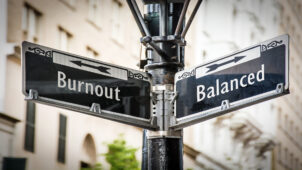Life is a journey filled with moments of intensity, both physical and emotional. From the exhilarating high of an intense workout to the stress of a demanding job, the joy of family bonding, and the challenges of building a strong community, intensity is part of the very fabric of our lives. We’ve all heard the expression “what doesn’t kill you makes you stronger," and there’s certainly some truth to that! Within that statement though, there is also the real potential for overload - which may not contribute to our lives in a positive way.
The good news is that when we learn to understand and navigate intensity in a curious and compassionate way, we can experience it as a fascinating part of living a full and embodied life. Let’s take a look at the concept of intensity, using the General Adaptation Syndrome (GAS) as a model to understand how our bodies and minds respond to intense experiences.
Understanding General Adaptation Syndrome
General Adaptation Syndrome, proposed by endocrinologist Hans Selye in the mid-20th century, is a framework that helps us understand how our bodies respond to stress and intensity. GAS consists of three stages: the alarm stage, the resistance stage, and the exhaustion stage. By examining each of these stages in the context of different aspects of life, we can gain insights into how intensity shapes our experiences and potentially makes us stronger.
Alarm Stage: The Initial Excitement
The alarm stage is the first response to a stressor. In fitness training, this can be compared to the initial excitement (and sometimes shock) that a body experiences when introducing new and perhaps more intense activities to your movement repertoire. The brain is working hard to make new connections, the muscles may ache, and the whole thing can feel like an uphill battle.
In life, this stage can look like sudden changes, challenges, or crises. At work, it might be a high-pressure project or a demanding deadline. Within a family, it could be a health scare or a significant life event. In a community, it might be a disaster or a crisis that requires collective action.
At this point, we can feel overwhelmed, and our focus narrows. It's important to remember that the initial shock is a necessary precursor to growth and adaptation. You're experiencing new things that you haven't developed supports for yet! The body and mind respond by mobilizing new resources, (which in an of itself can be tiring), and it's in this phase that we can discover our inner reserves of strength and resilience.
If we feel under-resourced to begin with, this stage can feel more than overwhelming. This first phase may feel too intense for our capacity to cope. It may tax our inner reserves past the point of building strength and resilience, and take us in a different direction instead. When we are able come into new experiences feeling well-supported at the start, we may find the whole process easier to manage. If you are feeling past the point of coping, take a good look at all the areas you are experiencing intensity, and see where there might be choices to be made around how much you're taking on all at once.
Resistance Stage: Building Resilience
As we progress through the resistance stage, our bodies and minds adapt to new stressors. In fitness training, this is the phase where the muscles get stronger, and you find yourself able to handle more intense physical activity. Your endurance improves, and the aches and pains begin to subside.
In your work life, this stage is where you start to develop strategies to cope with new demands. You might become more organized, delegate tasks, and find ways to balance your workload. At home, intense experiences may lead to closer bonding and emotional growth as everyone works together to overcome the challenges. In our communities, it's the phase where collective strength and resilience are built, as people come together to address the crisis.
Resilience, both physical and emotional, is the key to surviving and thriving during intense experiences. It's the ability to adapt and grow stronger in the face of adversity. The resistance stage is where you begin to reap the benefits of the intensity you've encountered.

Exhaustion Stage: The Price of Intensity
However, it's important to note that intensity, when prolonged or excessive, can lead to the exhaustion stage. In fitness, overtraining can lead to physical burnout, injuries, or a decline in performance. At work, chronic stress can result in burnout and health issues. In the family and community, prolonged intensity can strain relationships and lead to emotional fatigue.
In this stage, the body and mind have depleted their resources. The once-positive adaptation starts to take a toll. It's a warning that the intensity has become too much to bear. To prevent the exhaustion stage from becoming chronic, it's essential to recognize the signs and take steps to mitigate the stressors. Athletes build rest into their training cycles; sleep, movement and good food restore the functions of our body and minds; connections build the love and relationships that help us feel valued; days away from work allow us to rest and connect to our worlds in ways that help us see beyond "the job." None of us live in a silo. It's important to widen our focus sometimes.
Intensity in Various Aspects of Life
Let's take a look at intensity in the context of our Pilates training, health, work, family, and community.
Pilates Fitness Training:
Pilates is a perfect example of how intensity can be harnessed to build physical strength and flexibility. The alarm stage can be the initial soreness and fatigue that may come with starting a new Pilates routine. It can also show up as the inner confusion around finding how to move and relate to your body in a new and likely unfamiliar way. The resistance stage is the gradual improvement in your core strength, posture, and balance. However, pushing yourself too hard can lead to the exhaustion stage, potentially causing injuries.
To maximize the benefits of Pilates, look for a balance between intensity and ease. Find a flow to your movement - whether you're pushing past limits or finding connections. Compassionate curiosity is key! Listen to your body, and gradually explore the different nuances of intensity in your body and workouts. Consistency, rather than overexertion, is key to long-term progress.
Health:
In the context of health, the alarm stage might be an unexpected medical diagnosis. The resistance stage involves adapting to treatment and making lifestyle changes. Chronic health issues can lead to the exhaustion stage, both physically and emotionally. Finding a compassionate way to manage the visible, and sometimes invisible demands on you, your body and your mind as you attend to treatment and heal is an important part of the process. Where can you access meaningful supports to help you manage the overwhelm?
Work:
In the workplace, the alarm stage often involves tight deadlines and heavy workloads. The resistance stage entails adapting by improving time management, setting boundaries, and seeking support when needed. Prolonged exposure to workplace stress can lead to burnout, resulting in the exhaustion stage.To maintain a healthy work-life balance and prevent burnout, look for ways to set priorities, delegate tasks, and practice self-care. "Digging in" and "gutting it out" are things our society seems to value, but recognizing when the intensity is too high and taking necessary breaks and accessing support is essential for long-term career success.
Family:
Intense family experiences may include major life changes like the birth of a child or a family crisis. The alarm stage involves the initial shock and adjustments. The resistance stage is characterized by strengthening family bonds and finding ways to support one another. However, persistent intensity can lead to emotional exhaustion and strain on relationships. Effective communication, practicing empathy within the family and seeking help can help manage and navigate intense family experiences.
Community:
In a community, intensity can manifest during crises such as pandemics, natural disasters, social unrest, or economic challenges. (Pandemics, wars, environmental degradation and economic volatility anyone? Our global community has a lot of experience with this kind of intensity in recent years!) Our immediate response to the crisis is the alarm stage. The resistance stage involves collective efforts to overcome the challenges and rebuild. Prolonged intensity can lead to community exhaustion, with social divisions and emotional fatigue.
Building a resilient community involves effective leadership, cooperation, and social support networks. It's crucial to foster a sense of unity and maintain open lines of communication to manage and mitigate the effects of intense experiences. As the saying goes... "it takes a village!"

Navigating Intensity
Intense experiences are an integral part of life, and they can lead to amazing personal growth and resilience. It's important to recognize though, that intense experiences don't always occur in isolation. We may experience intensity in several aspects of our lives all at once. Each circumstance may tax our resources in different ways, contributing to a snowball effect that challenges us in ways we don't expect. Understanding the phases of General Adaptation Syndrome may help us recognize when the intensity is becoming too much to bear, and lend us cues to finding new pathways.
Navigating intensity successfully takes awareness, intention and compassionate curiosity. What do we need to make sure we have in place for ourselves when we dive headfirst into intensity? When is it important to sit in the discomfort of something new, with the faith that we are finding our way to something different and perhaps better? Where do we have the freedom to make choices around stepping back a bit, or letting something go? Are there areas in our lives where we be able to support ourselves better? Where can we ask for help? Nutrition, sleep, movement, connections, finances, joy, beauty… what do we need to feel better supported - as individuals and in community? Radical self-care and connections can be powerful tools in the process.
Wherever we find it, finding the right balance inside the nuances of intensity is key to emerging stronger from life's challenges. Remember, what doesn't kill you can indeed make you stronger, but only if you approach intensity with respect, awareness, deep listening, and self-care.
What are your experiences navigating intensity? Share your thoughts in the comments below!
About Susannah Steers

Susannah is a Pilates and Integrated Movement Specialist, and owner of Moving Spirit. Through teaching movement, speaking, and facilitating workshops, she supports people in creating movement practices that promote health and fitness from the inside out. She loves building community, and and exploring multi-disciplinary connections. Susannah co-hosts The Small Conversations for a Better World podcast – an interview based podcast dedicated to promoting the kind of conversations about health that can spark positive change in individuals, families, communities and across the globe.
